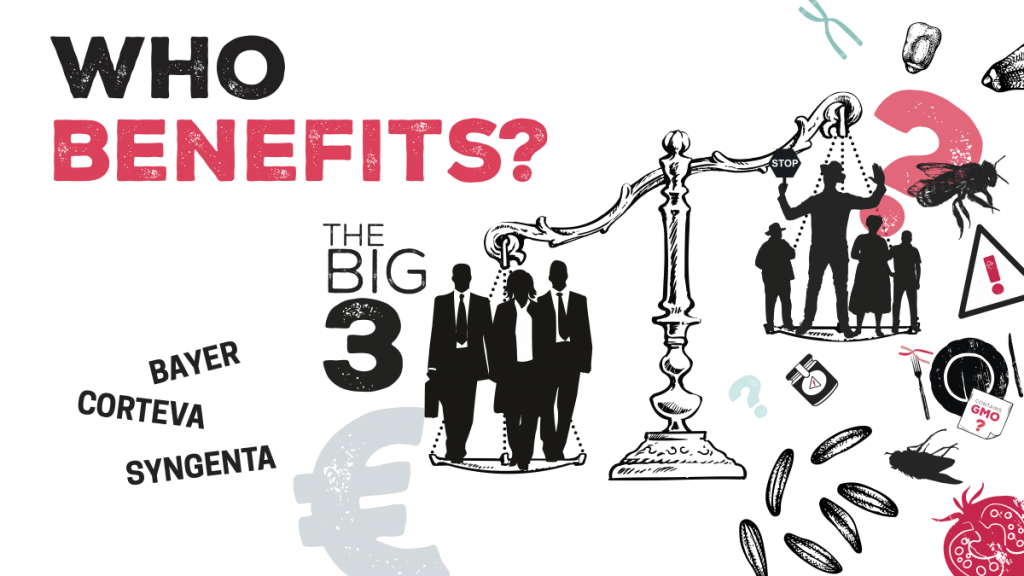Following the Polish presidency’s new draft EU law to exclude the new generation of genetically-modified organisms (new GMOs, so-called NGTs) from most EU legislative requirements, Friends of the Earth Europe publishes a series of briefings assessing the impacts of the deregulation plans for different segments of the society – from patents, labelling, risk assessments and liability.
The briefings reveal a stark divide: a handful of biotech and pesticide corporations will reap the benefits and profits, while farmers, consumers and nature face significant risks and losses.
Patents: consolidating corporate control
The Polish draft aims to minimise the marketing of patented new GMOs. However, the real issue lies in the existing patent legislation which is riddled with loopholes and fosters the power of a few agribusiness giants – Bayer, Corteva and Chem China/Syngenta – over the food sector. Deregulation of new GMOs will not help curb these monopolies.
By allowing biotech giants to patent GMO traits as well as traits that occur naturally or through classical breeding methods, the law risks granting corporations ownership over natural seeds and conventionally bred products. This would block small and medium-sized breeders from accessing critical genetic resources, undermining their ability to adapt to emerging diseases or extreme weather.
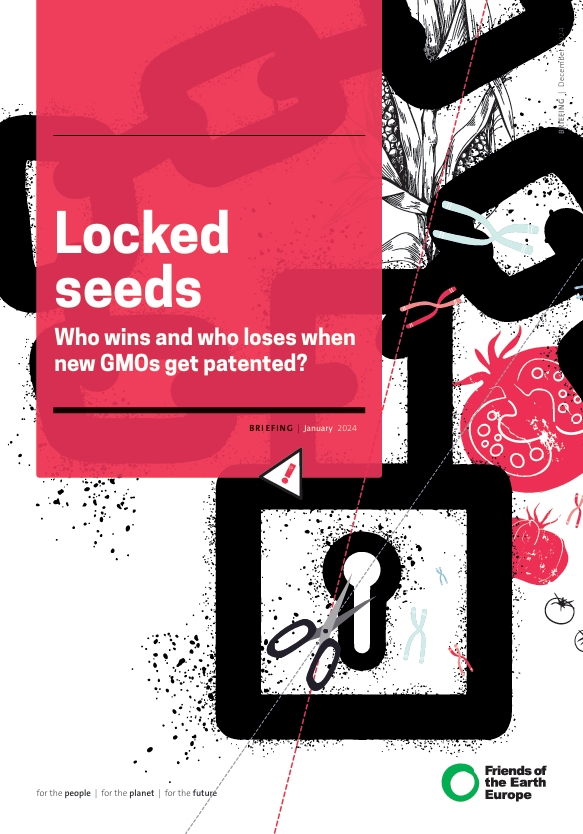
(Click here for more languages)
Labelling: consumers and farmers left in the dark
The draft law excludes new GMOS from existing labelling requirements, denying consumers their right to transparency. For over two decades, European consumers have consistently rejected GMOs, yet the deregulation opens lucrative new market opportunities for agribusiness giants by bypassing this opposition.
Farmers, especially those practicing organic or conventional (non-GMO) farming will bear the brunt of these changes, facing significant additional burdens and costs to prevent contamination from unlabelled new GMOs.
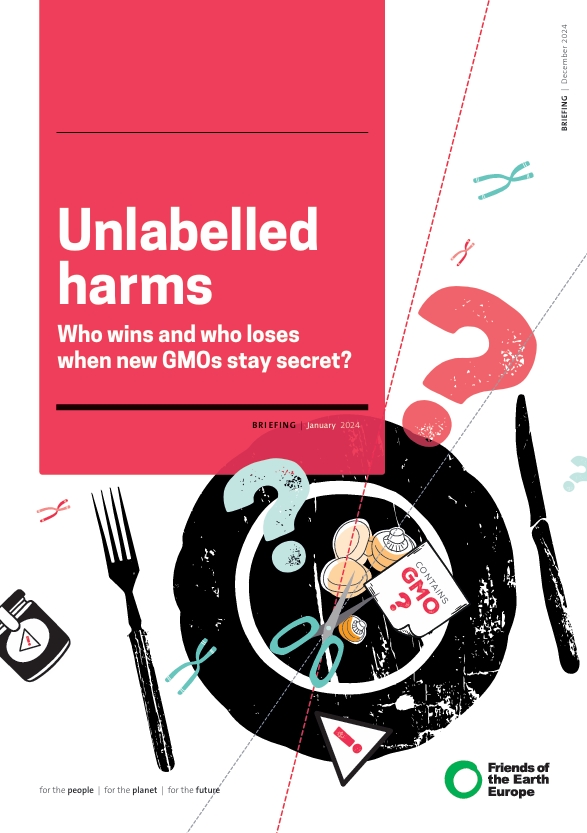
(Click here for more languages)
Safety checks and liability: a free pass for big corporations
EU lawmakers intend to remove any safety checks for most new GMOs without introducing compensatory liability clauses. This means that corporations like Bayer, Chem China/Syngenta, BASF and Corteva can market these products with no accountability for potential harm.
Food processors and retailers will be forced to absorb extra costs to safeguard conventional and organic products from contamination. Furthermore, the indefinite authorisation of new GMOs planned under the deregulation law, without monitoring mechanisms, means any potential harm will likely go unaddressed, leaving consumers, farmers, and the environment exposed without recourse.
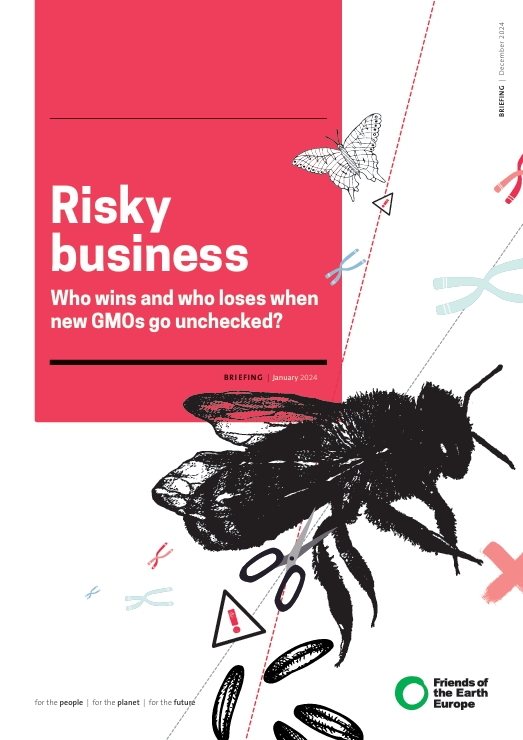
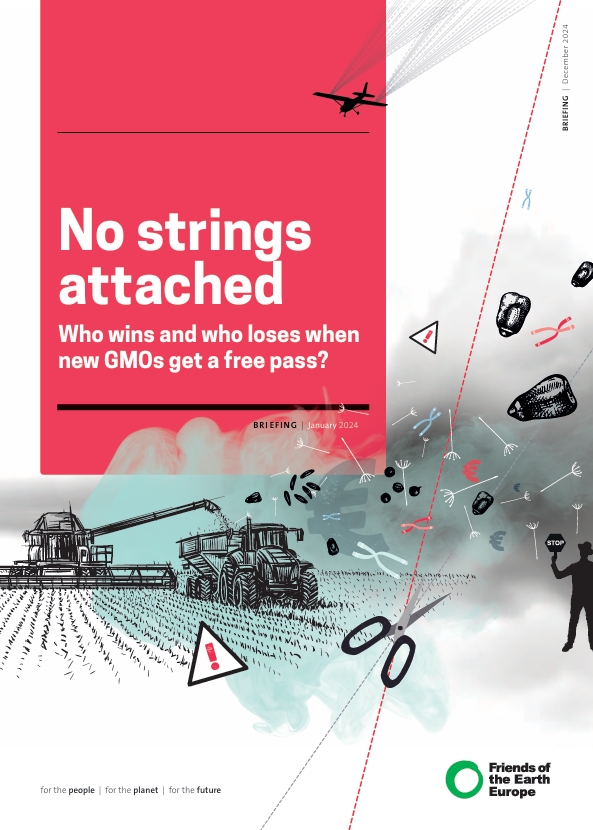
(Click here for more languages)
(Click here for more languages)
Mute Schimpf, food campaigner at Friends of the Earth, said:
“EU decision makers have failed to explain why we need this dangerous deregulation. If this proposal succeeds, it could trigger a wave of patented plants across Europe’s fields, handing unprecedented power to agribusiness giants. Meanwhile, consumers will lose their right to know what’s in their plates, and farmers will bear the costs of preventing contamination. This draft law benefits a select few at the expense of everyone else.”
Next step
National officials will discuss the Polish draft text in a special working group meeting on 20 January 2025.


